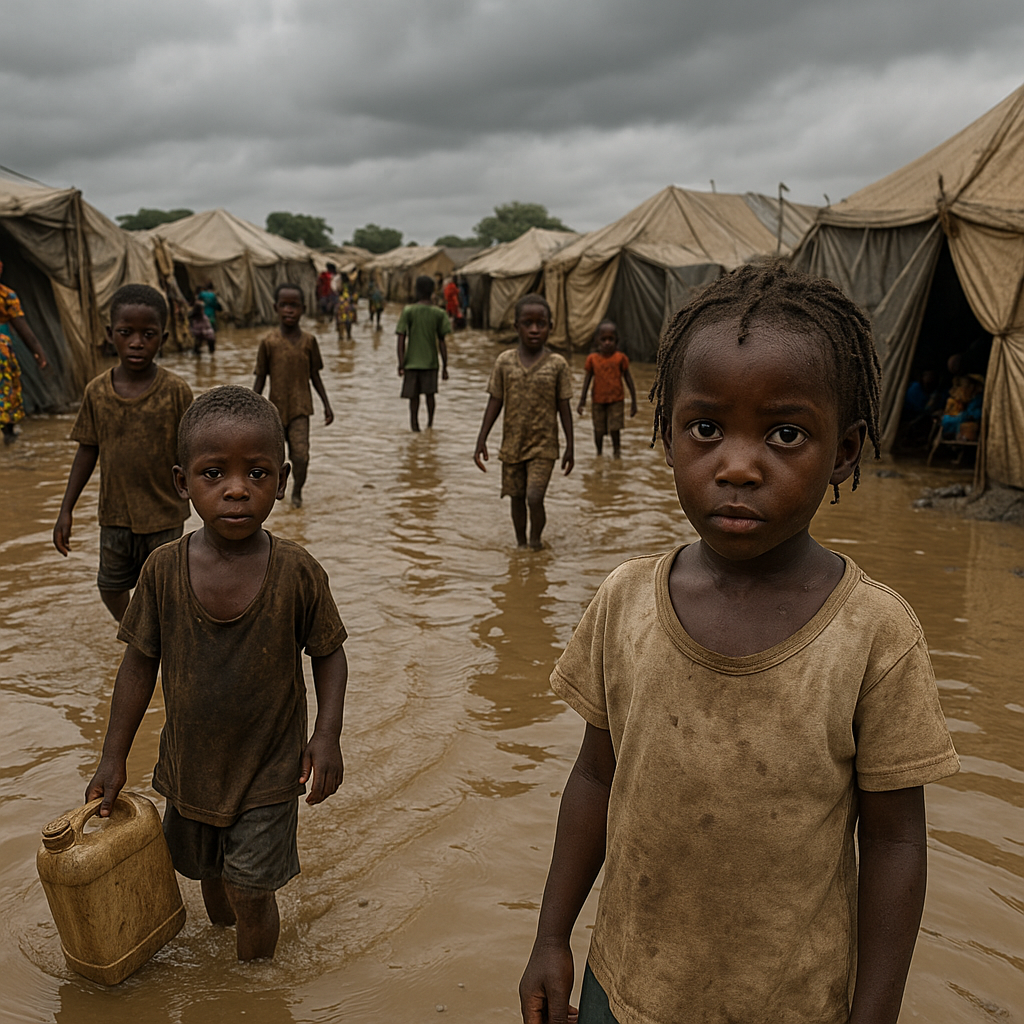AfDB Pushes Gender-Responsive Climate Finance at Africa Climate Summit
During the panel, AfDB investment partner KawiSafi Ventures announced that 35% of its US$90 million Fund II will target female-founded companies in the energy transition sector.

- Country:
- Nigeria
The African Development Bank (AfDB) convened a high-level dialogue on advancing gender-responsive climate and energy solutions during the Second Africa Climate Summit, underlining the urgent need to integrate women into climate finance, policy, and innovation frameworks.
Empowering Women Through Climate Finance
The event, titled “Scaling Up Gender-Responsive Climate and Energy Solutions: From Finance to Policy and Data”, highlighted how women across Africa, particularly in rural areas, are disproportionately affected by the climate crisis while often excluded from decision-making and financial opportunities.
During the panel, AfDB investment partner KawiSafi Ventures announced that 35% of its US$90 million Fund II will target female-founded companies in the energy transition sector. The move signals a concrete step toward addressing systemic gender inequalities in climate entrepreneurship.
Angela Muraguri, Investment Manager at KawiSafi Ventures, noted that while this allocation was significant, it was “only scratching the surface” of the broader challenge. She urged expanded partnerships and stronger commitments to ensure that women have equitable access to resources and opportunities in Africa’s green economy.
AfDB’s Commitment: AFAWA and Climate Partnerships
The African Development Bank is leveraging multiple flagship initiatives to embed gender equity into climate action. Chief among them is the Affirmative Finance Action for Women in Africa (AFAWA) programme, which is unlocking billions in credit for women-led businesses.
The Bank also works closely with the Climate Investment Funds (CIFs), creating avenues to support women entrepreneurs, drive gender-sensitive reforms in national policies, and strengthen women’s participation in the renewable energy and agriculture sectors. Partnerships with civil society groups ensure grassroots-level implementation, giving women in vulnerable communities direct access to the benefits of climate adaptation projects.
Women at the Forefront of the Climate Challenge
Speakers underscored that Africa is among the regions most vulnerable to climate change, with erratic rainfall, extreme weather events, and declining agricultural productivity threatening livelihoods. Women, especially in rural areas, carry a heavier burden, as they are responsible for household food security, water collection, and energy needs.
Jemimah Njuki, AfDB’s Director of Gender, Women Empowerment, and Civil Society, stressed the importance of inclusive solutions:
“Women, particularly in rural areas, are bearing the brunt of these shocks while often being excluded from decision-making, finance, and opportunities in the green economy. When women are empowered as leaders, innovators, and entrepreneurs, our collective response to climate change becomes stronger.”
Similarly, Farah Outeldait of the Climate Investment Funds emphasized that empowering women in energy systems—whether as users, entrepreneurs, or decision-makers—directly translates into better access, improved resilience, and thriving communities.
A Platform for Global Leadership
The panel, moderated by Mehjabeen Alarakhia of UN Women, brought together representatives from South Africa’s National Business Initiative, Farm Africa, and other key partners. Speakers including Noluthando Mthimkulu (National Business Initiative, South Africa) and Billo Denabo (Farm Africa) shared insights on how grassroots programmes and private-sector financing can converge to close gender gaps in climate action.
Kidanua Gizaw, coordinator of AfDB’s partnership with CIFs, reaffirmed the Bank’s broader mission:
“Through the climate funds we partner with and implement, we are ensuring that women and youth are at the center of Africa's climate transition.”
Beyond Finance: A Knowledge and Policy Leader
In addition to financing projects, the African Development Bank positions itself as a knowledge broker and standard-setter for inclusive climate action. By linking finance to data-driven gender policies, the Bank aims to influence how African nations integrate gender into their climate strategies.
The Addis Ababa event reinforced the urgency of mobilizing resources, partnerships, and knowledge to ensure that women—not just men—drive Africa’s climate resilience and green transformation.
ALSO READ
Sushila Karki: A Milestone in Women Empowerment and Nepali Democracy
Nepal's First Woman PM: A Milestone in Women Empowerment
Airlock India: Revolutionizing Kitchenware with Women Empowerment
Ceigall India Ventures Into Renewable Energy With 337 MW Solar Project
ACME Solar's Major BESS Order Marks Milestone in Renewable Energy Expansion










